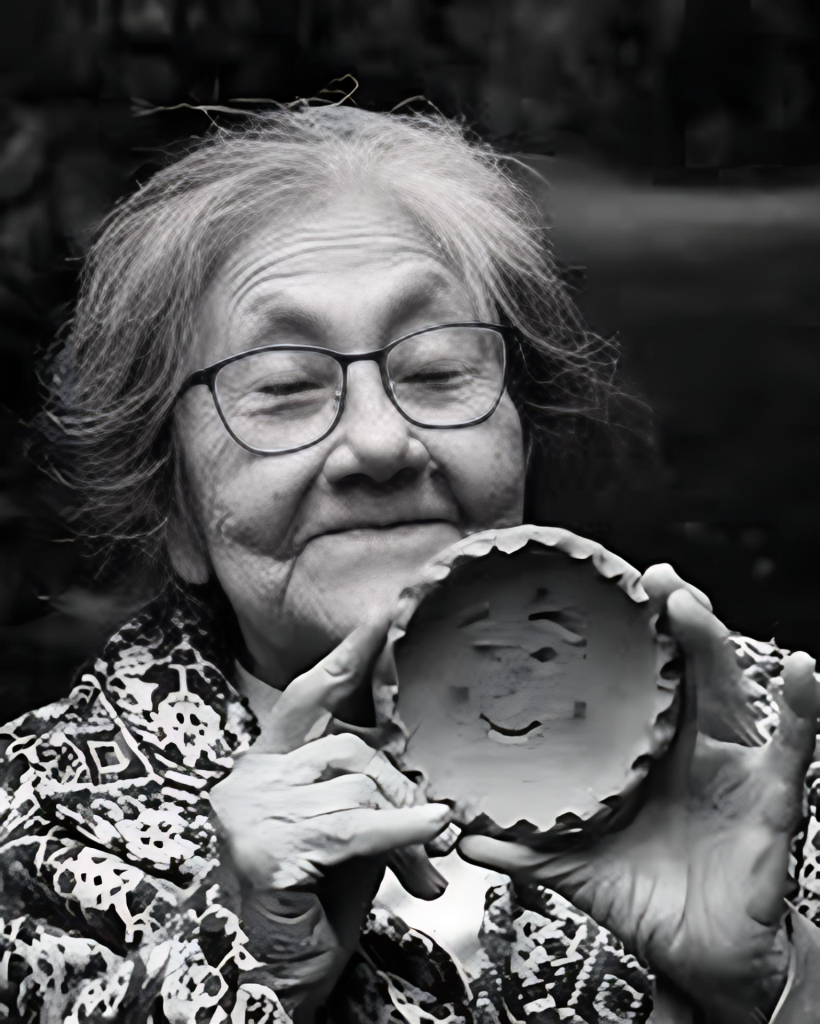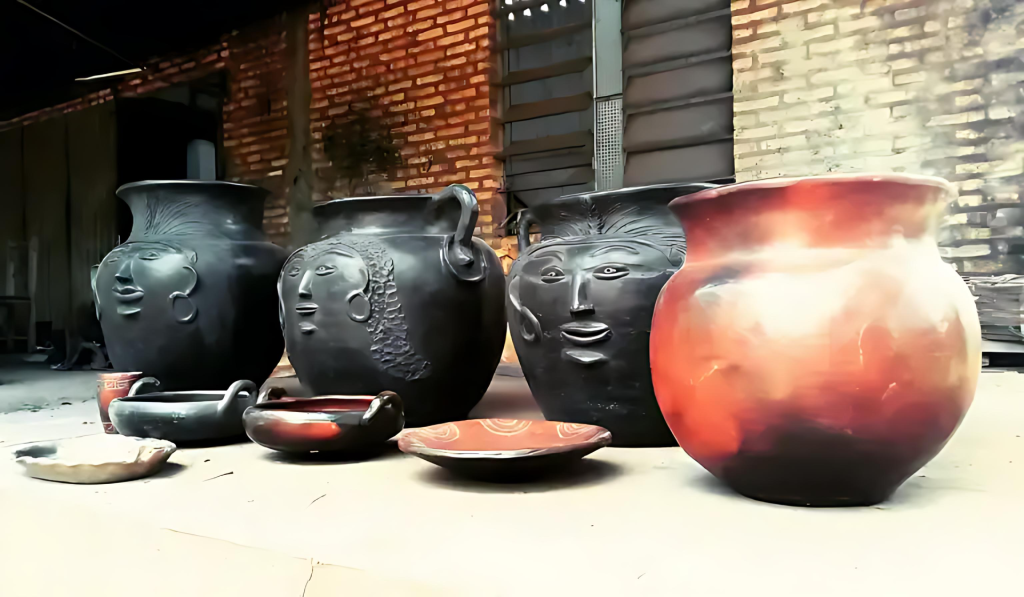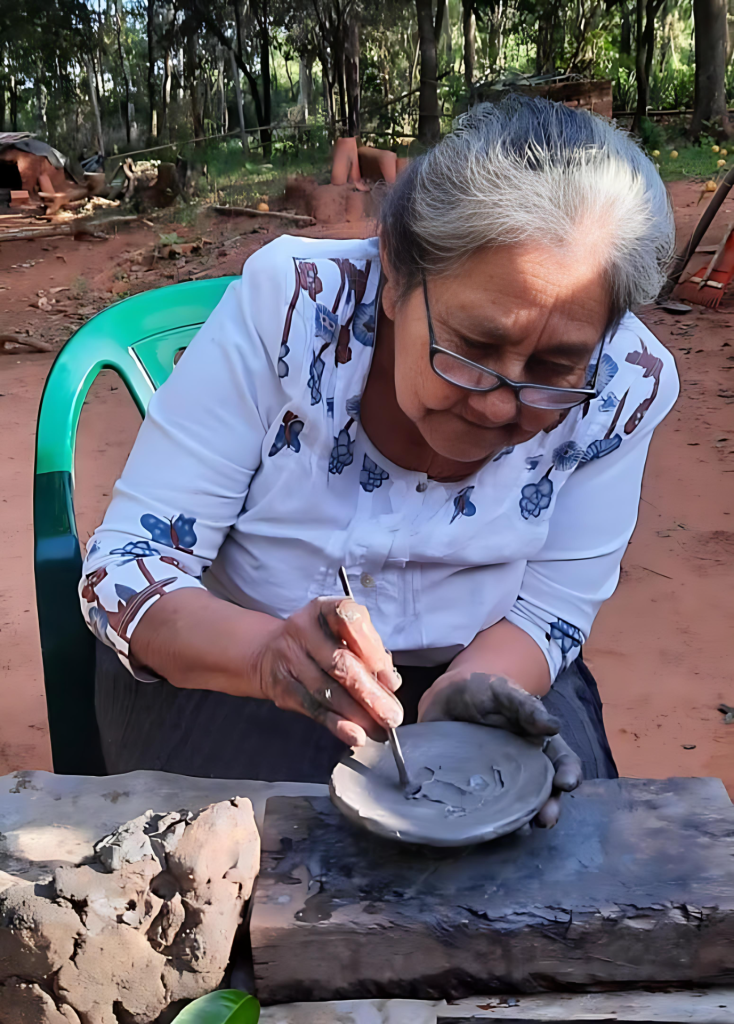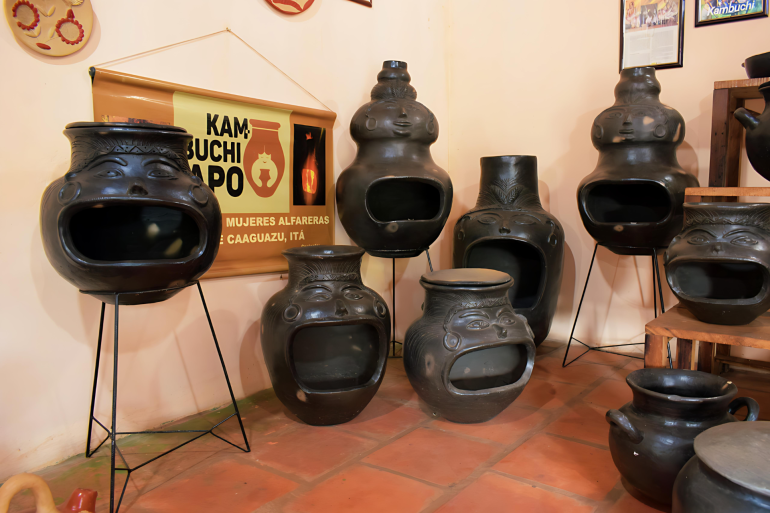In honour of master potter Rosalina Robles, a series of three pottery workshops will take place in the Peguaho company, Yaguarón, during June and July. These events are open to the public, with limited spaces available. The purpose of this pottery workshop series is to reconnect with the ancestral wisdom of ñai’ũpo (ceramic work), a Guaraní legacy.
The initiative seeks to preserve oral memory and collective construction, while revitalising local heritage alongside the relatives of Mrs. Robles and her community.
Rosalina Robles: Handprints of a legacy
Rosalina Robles was a potter from the company of Peguaho, Yaguarón, and a key figure in preserving the ñai’ũpotechnique. She learned the craft from her grandmother and mother, and in turn passed it on to her children.
Declared a “Living National Treasure” by the National Secretariat of Culture in 2021, Mrs Robles passed away on 30 October 2024, at the age of 80, after a month in intensive care at the Regional Hospital of Paraguarí.



Workshop schedule and themes
The first pottery workshop, “Meeting with the Community and Recognition of the Territory”, will be held on 28 June, from 9:30 AM to 11:30 AM. The second workshop, “Mbeju Tova”, will take place on 29 June at the same time. Both will be hosted by the children of Rosalina Robles.
The final and longest pottery workshop, “Technical and Symbolic Knowledge about Fire, Pottery and the Word”, will be held on 5 July from 9:00 AM to 6:00 OM, led by the Kambuchi Apo Association (meaning “Making of Pitcher”) from the city of Itá.
All workshops will be held outdoors, in front of the house that once belonged to Mrs. Robles. The initiative is supported by the National Secretariat of Culture (SNC), the Municipality of Yaguarón, the Paraguayan Institute of Handicrafts (IPA), the Kambuchi Apo Association of Itá, and members of Rosalina Robles’ family and community.
The art of handcrafting
Ñai’ũpo is an ancestral craft practised in the cities of Itá, Tobatí, and Yaguarón, passed down through generations. This traditional form of pottery involves the use of black clay, sourced from marshes and mixed with brick dust, to create both functional items and artistic figures. The black ceramic pieces are entirely handmade, without the use of pottery wheels or chiselling tools. Instead, the colombín technique is employed. This method builds the piece from the base upwards in a spiral, using only the hands to mould the clay.
Each pottery workshop offers a chance to learn and experience these environmentally friendly techniques, which also utilise natural pigments for painting, rather than synthetic or industrial materials.
The pieces produced range from clay figurines, such as animals, saints, and human figures, to everyday items like braziers, plates, cups, frying pans, and pots.
Ñai’ũpo recognised as Cultural Heritage
The ñai’ũpo tradition has been recognised as National Intangible Cultural Heritage for its deep cultural value, ancestral roots and the artisanal craftsmanship it represents. It is currently under consideration for UNESCO’s List of Intangible Cultural Heritage in Need of Urgent Safeguarding. Likewise, the Guarania was recently inscribed as an Intangible Cultural Heritage of Humanity by UNESCO, underscoring Paraguay’s growing global profile in preserving its living traditions.
Mrs. Robles’ legacy has inspired not only this pottery workshop series, but also further cultural efforts. In February 2025, a group of architects began the construction of a memorial museum in her honour. Built with natural materials such as straw and earth, the project also trained thirty people from the departments of Paraguarí, Central, and Asunción.


